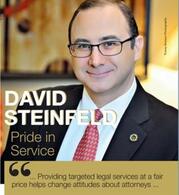Common problems landlords and tenants face before they sign their residential lease
This article is part one of a three-part series addressing common problems that landlords and tenants run into in residential leasing. Residential leasing in Florida is regulated by Chapter 83 in the Florida Statutes but it is governed by the lease between the landlord and tenant.
The three phases in which problems can arise are before the lease is signed, during the lease, and at the end of the lease. Each phase has unique issues. This article covers those issues that most often arise before the lease is signed and looks at perspectives of both the tenant and the landlord.
The three phases in which problems can arise are before the lease is signed, during the lease, and at the end of the lease. Each phase has unique issues. This article covers those issues that most often arise before the lease is signed and looks at perspectives of both the tenant and the landlord.
First Issue - the security deposit
The important components of the pre-leasing phase are the money and the property. With regard to the money, normally a landlord will require some form of a deposit and payment of at least the first month of the lease. Sometimes they also require payment of the last month of the lease as well. Those payments are different from a traditional security deposit of which there are two types. One kind of security deposit guarantees performance of the lease and the other provides security for damage to the property. In both cases, upon full performance of the lease, the security deposit is generally refunded to the renter unless provided for otherwise by the lease.
For the landlord getting the largest deposit and prepayment of rent is tremendously beneficial. If a tenant defaults on rent the deposit essentially prefunds the eviction. Likewise if the tenant damages the property the deposit will cover those repairs. So the deposits and advanced rent insulate the landlord in those scenarios.
For the landlord getting the largest deposit and prepayment of rent is tremendously beneficial. If a tenant defaults on rent the deposit essentially prefunds the eviction. Likewise if the tenant damages the property the deposit will cover those repairs. So the deposits and advanced rent insulate the landlord in those scenarios.
What the tenant should know about the deposit before signing a lease
For the tenant the important issue at this pre-leasing stage is to read the proposed lease and any associated disclosures to understand what deposit the tenant is paying. In some cases part of the deposit may be payment of advance rent and the tenant may mistakenly believe that the entire deposit will be refunded at the conclusion of the lease. Also where the final month rent is prepaid the lease may provide that the tenant is still responsible to pay that rent but will receive a refund of the advance rent but the tenant may mistakenly believe the advance rent will automatically be applied.
To avoid misunderstandings and problems at the end of the lease it is useful for the tenant to understand the nature and use of the deposit which is normally best defined by the lease. As an aside while a lease may be oral or written it is not common to have oral leases of any significant duration and any sophisticated landlord will not forego the opportunity to utilize a written lease agreement for the uncertainty of an oral one.
To avoid misunderstandings and problems at the end of the lease it is useful for the tenant to understand the nature and use of the deposit which is normally best defined by the lease. As an aside while a lease may be oral or written it is not common to have oral leases of any significant duration and any sophisticated landlord will not forego the opportunity to utilize a written lease agreement for the uncertainty of an oral one.
Second Issue - the condition of the property
The second important component in the pre-leasing phase is the physical condition of the property. Under Chapter 83 of our Florida Statutes both the landlord and the tenant have some duties to maintain the premises but the lease can modify those responsibilities. It is normally prudent for a tenant to not take possession of a rental unit without inspecting it or hiring someone to do that for them. Where the tenant is out of town or unable to inspect the property it is easy to hire a home inspector or even ask the leasing agent to conduct a video call from the premises with the tenant showing the apartment, condo, or house to the tenant.
At the very least, the tenant should ask a person involved in the leasing process such as the property owner or its leasing agent to send photos showing the condition of the property. Too often tenants sign leases and move in only to discover serious problems such as mold, water leaks, or a broken air conditioner. Depending on the terms of the lease the responsibility may lie with the tenant so it is best to inspect before you rent.
At the very least, the tenant should ask a person involved in the leasing process such as the property owner or its leasing agent to send photos showing the condition of the property. Too often tenants sign leases and move in only to discover serious problems such as mold, water leaks, or a broken air conditioner. Depending on the terms of the lease the responsibility may lie with the tenant so it is best to inspect before you rent.
What every landlord should know about inspections
For the landlord the pre-leasing issue of the physical condition of the demised premises comes down to knowledge and the lease terms. For example if a landlord is aware of a broken air conditioner in a unit from the prior tenant it is likely that putting a new tenant in the premises without fully or properly repairing that broken AC will result in a dispute that can create unnecessary liability for the landlord.
While it may be a situation where the landlord honestly believed that the air conditioning was fixed or repaired and it was merely patched or improperly repaired the landlord may still incur liability if the landlord does not fix the problem or restore the broken appliance to full functionality. Likewise if a tenant causes the damage then the lease generally governs the obligations of the parties so documentation of the condition of the premises at move-out of one tenant and at the move-in of the next renter is as important and useful to the landlord as it is to the tenant.
Documenting the functioning of the AC in that scenario would help the landlord establish the fact that the AC was properly working at the start of the lease if a tenant claimed even in the first month that the AC was not working. In the end who is responsible for the repair comes down to the lease and the parties; the tenant may be responsible but the landlord may even agree to pay for the repair to keep a happy tenant in the home. The point being the parties can and should work these issues out among themselves.
While it may be a situation where the landlord honestly believed that the air conditioning was fixed or repaired and it was merely patched or improperly repaired the landlord may still incur liability if the landlord does not fix the problem or restore the broken appliance to full functionality. Likewise if a tenant causes the damage then the lease generally governs the obligations of the parties so documentation of the condition of the premises at move-out of one tenant and at the move-in of the next renter is as important and useful to the landlord as it is to the tenant.
Documenting the functioning of the AC in that scenario would help the landlord establish the fact that the AC was properly working at the start of the lease if a tenant claimed even in the first month that the AC was not working. In the end who is responsible for the repair comes down to the lease and the parties; the tenant may be responsible but the landlord may even agree to pay for the repair to keep a happy tenant in the home. The point being the parties can and should work these issues out among themselves.
Part 2 of of this series addresses problems during a lease
Prepared by business litigation expert attorney David Steinfeld

David Steinfeld is one of the few Board Certified business law experts in Florida. He has been licensed for more than 25 years. He is AV-Preeminent rated, ranked as one of the Best Lawyers in America by U.S. News and World Report, and consistently named a Florida Super Lawyer and one of Florida’s Legal Elite. Dave has also received Martindale’s prestigious Judicial Edition Award for high reviews by Judges, its Platinum Client Champion Award and has a 10.0-Superb rating on AVVO as well as a 10.0 rating on Justia, lawyer reviews websites.
Check out business lawyer David Steinfeld online for helpful videos and articles on Florida business law, real estate disputes, and electronic discovery solutions for your business. This article is provided for informational purposes only.
Check out business lawyer David Steinfeld online for helpful videos and articles on Florida business law, real estate disputes, and electronic discovery solutions for your business. This article is provided for informational purposes only.
